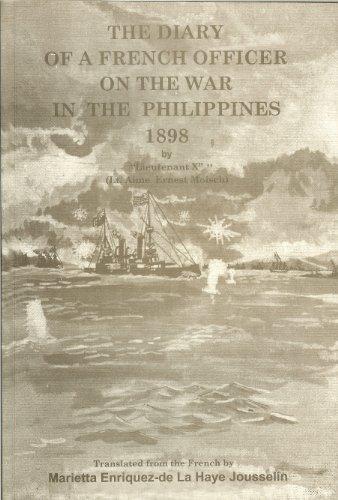Manila. The Campaign Strategy
Manila is waiting for help from Spain. There is no doubt Spain will send ships to avenge the defeat at Cavite, as well as troops to put down Aguinaldo. The Americans, would, therefore, have no alternative but to leave Manila as fast as possible, even if it be temporarily. It would be wise for them not to be anchored when armor-plated ships like the Pelayo and the Carlos V arrive. But this is an uncertain scenario. The Americans do not have an effective strategy here as they do in Cuba, where this war originated. Even if they had a plan to send 5,000, 10,000 or even 20,000 men to the Philippines, they would not be able to organize this in three or four months. Within that time-frame, Spanish troops and a fleet could arrive without any problem.
The Spaniards in Manila refuse to admit that the motherland has abandoned the Philippines, the last and most beautiful of her colonies. Up to now we heard of the departure of the Spanish squadron for the Antilles, where admiral Cervera is scheduled to arrive in two or three weeks. In my opinion, their biggest mistake was not to have sent help to the Philippines.
If it is true that Spain has 200,000 men in Cuba, what need is there to dispatch another squadron there? They would still be unable to ward off the entire United States Navy. But a small squadron may also be useless here, where there is considerable coastline to defend. When these islands were at peace, the Spaniards were able to prevent the rebels and filibusteros from carrying out their objectives. It is absurd to believe that eight or ten ships can serve to prevent an enemy from approaching the island — an enemy who, after all, is practically in his home ground, with unlimited manpower, resources, and about three times the number of ships, and has the determination to win this war. The weaker nation should study the best offense against the enemy.
If Spain had 100,000 men, and enough cannons and artillery in Cuba and the other big cities, the Americans would sustain a long, bitter, and costly war, pitted against better prepared soldiers familiar with the terrain and the terrible climate, with its rains, swamps, heat, yellow fever, and malaria. However, if the Spanish troops were fewer in number and poorly equipped — in other words, if Cuba were abandoned like the Philippines — the presence of the Spanish fleet would change nothing; Spain would be vanquished with or without the fleet.
A most important rule of war, which is easily forgotten, is to avoid setting conditions for a possible victory. There is a danger which must be avoided.
In any case, sending the fleet to Cuba can only have harmful consequences, because in the absence of options, whatever is available, even if useless, becomes dangerous. A fleet can defend territory only under two conditions: when it is superior to the offensive, and when — and this is of great importance — the territory can adequately provide its own defense. It is unthinkable to expect the cannons of a fleet to match those of the enemy on land, since a well-defended land position has more advantages than the best armed fleet.
The logical strategy would have been to leave Cuba to its fate and divert help to the Philippines, thus harming the enemy more and minimizing risks for the Spaniards. The Spanish fleet, at present in Florida, should be here to face Admiral Dewey’s ships and be given the chance to emerge victorious.
The Philippines would not only be saved, but would also provide the fleet with a strategic base from which the Sandwich Islands could be reached and attacked. From there they could arrive in San Francisco in five days and bombard the city. Although the Americans would be entering Havana at about the same time, the victory would be insignificant compared to San Francisco burning and Honolulu in rebellion.
This is the most logical plan, but it has to be boldly and quickly executed. Unfortunately, the strategy devised by old men is one of continuous hesitation, and perpetual waiting. Spain is morally old and no longer has new ideas on strategy.
It is a great mistake to believe that battles occur repeatedly in the same way and in the same place. War is not a mere game of chess wherein one loses Cuba by losing the Philippines, and the Philippines by losing Cuba. On the other hand, if San Francisco or Philadelphia were threatened, both the Philippines and Cuba could have been saved.
France did not lose Strasbourg in Alsace, but in Paris.
